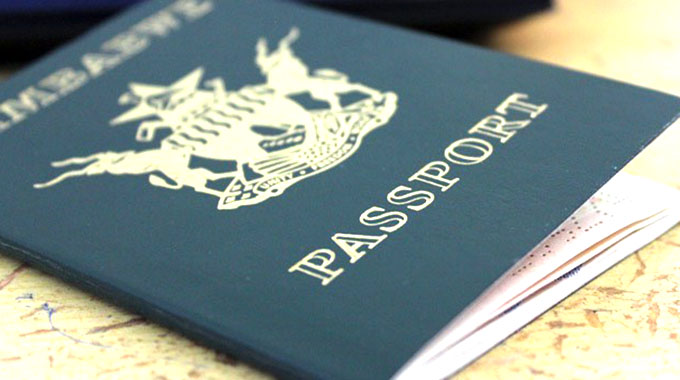The Lupane Youth for Development Trust (LUYDT) has challenged the government to expedite the issuing of passports to ordinary citizens by effecting the fees announced by Information Publicity and Broadcasting Services Minister, Monica Mutsvangwa early last month.
The government, which has been battling to clear the passport backlog dating back to February 2019, has since resorted to increasing passport fees ostensibly to clear the logjam.
According to the new fees a passport now costs US$60, US$200 and US$318 for an ordinary, three-day and 24 hour travel document respectively.
However, the Registrar-General’s Office is only processing documents for Zimbabweans in the diaspora, which cost US$318, with applicants having to book in advance.
The next booking date is June 7, on which a limited number of applicants will be considered.
“As an organisation, we feel the delay in putting the prices into effect and subsequent issuance of the travel documents is a direct violation of people’s rights considering its importance to livelihoods,” said LUYDT in a statement Wednesday.
“In a country where the health delivery system is in dire straits with many seeking specialized treatment in foreign countries it is only prudent for the government to speed up the issuing of passports to save innocent lives.
The organisation said it was regrettable that the registry offices are only issuing passports to the citizens living outside the country.
“As an organisation we view this occurrence as a deliberate ploy to fleece citizens of their hard earned cash,” said LUYDT.
“We have also been made aware that the emergency passport, which by its nature should be issued within working 24 hours, is taking over three days to be issued, further prejudicing the applicants. Moreover, the Registrar General Office is refusing to accept equivalent payment in local currency in violation of the Bank Use Promotion Act.”
LUYDT bemoaned the pegging of passport fees in foreign currency in a country where the unemployment rate is estimated to be over 80 percent.
“Most youths, vulnerable members of society and the majority of Zimbabweans can hardly manage to raise the US$60 required for an ordinary passport under the prevailing economic conditions being faced by the country, worse still most of the employed are paid their salaries in local currency,” said LUYDT.
“The informal sector is now the biggest employer and with most people relying on cross border trading, it will become difficult for them to cross borders for the purposes of importing goods for resale, upon the relaxation of Covid-19 regulations, as they would struggle to raise the amounts required for one to obtain the travel document.”

